CDH Education Program Jan-May 2022
| We are proud to present the new staff education program of the Centre for Digital Humanities (CDH). We again offer a diverse program with lectures and hands-on workshops on all kinds of different aspects of digital humanities. Registration is open. Attendance to CDH courses and workshops (not the webinars) will be compensated by the Centre for Digital Humanities in terms of DCU (22 hours = 1 DCU). The DCU’s will be automatically settled with your department at the end of each course. |
26 January
Beyond Ctrl-F: how to semi-automate searches in numerous files using regular expressions, Poppler, GREP and Python

In this hands-on workshop Liliana Melgar (GKG) covers the basic level of automated searching. This workshop is intended for a limited number of participants and offers the possibility of doing hands-on work with regular expressions, Poppler, GREP, and Python with the guidance of an experienced instructor. The training is aimed at researchers or teachers from the Faculty of Humanities of Utrecht University who have little or no experience with the command line/terminal or with Python.
8 February
Tutorial data scraping for UU humanities staff
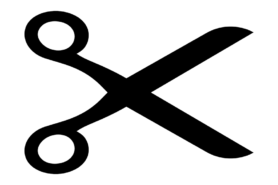
During this introductory workshop, Sander Prins (Utrecht Data School & CDH), will teach you the basics of web scraping and guide you through a graphical user interface named Outwit Hub. The instructor will show you the possibilities of collecting and organizing data from online resources.
Read more & register18 February
CDH Webinar: Studying digital history as cross-disciplinary trading zones
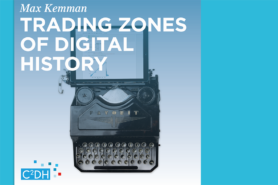
In his recently published book Trading Zones of Digital History, dr. Max Kemman examines digital history collaborations and reflects on the positioning of digital history between the digital and the historical. Kemman has a background in Artificial Intelligence, Computer Science and History. In this lecture he will elaborate on the book and his approach to this subject.
Read more & register22 February
Research Data Management for the humanities

This short Research Data Management (RDM) training, specially developed for humanities staff, touches on all aspects of research data management: FAIR data, data collection, data documentation, data storage, data security, data selection and preservation, and data availability for reuse. The workshop will be given by Frans de Liagre Böhl, data manager for the Faculty of Humanities.
Read more & register18 March
Basics of Statistics – Hands-on training day for humanities teachers/researchers

Data are becoming increasingly important in the humanities. In this one-day course, intended for researchers and teachers in the humanities, you will learn the basics of statistical data analysis. The training will be given by prof. Hugo Quené.
Read more & register24 March
Principles & practices of machine learning: A hands-on training for beginners with applications in the humanities
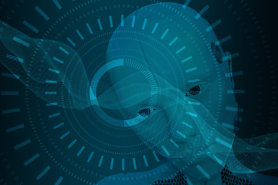
In this one-day course Hugo Schnack, assistant professor Language acquisition, processing and disorders, will give an introduction to what machine learning is, when and how it can be used and what it can do. In practicals you will train, test, and interpret machine learning models yourself on (real) datasets.
Read more & register25 March
CDH webinar ‘Who wrote the Wilhelmus? – A comparison of latent semantic analysis and correspondence analysis for text mining’
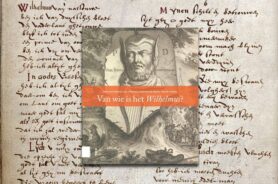
Potential applications of text mining are everywhere: emails, sentiment analysis, authorship attribution and so on. In this lecture, PhD candidate Qianqian Qi, will discuss two text mining methods: Latent Semantic Analysis and Correspondence Analysis. She will use these two methods to explore who wrote the Wilhelmus.
Read more & register8 April
CDH webinar: Computer vision in early modern print culture
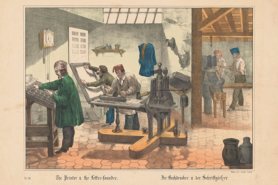
In this online lecture Jeroen Salman (CDH affiliated member) and guest speaker Giles Bergel (Oxford University) explore some of the computer vision tools that help early modern scholars to systematically analyse images in collections of pre-modern prints and illustrated books (engravings, etchings, woodcuts). To what extent can we answer fundamental questions about the materiality, iconography, functionality, dissemination and adaptation of these printed images?
Read more & register12 April
Getting started with network analysis – introductory Gephi course for Humanities staff
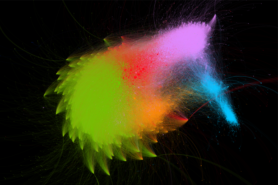
The image on the left is a network visualization of one and a half million tweets. In this workshop, Jeroen Bakker, junior researcher at Utrecht Data School, will introduce you to network analysis and visualization using Gephi. After this hands-on session, you will be able to conduct a network research on a large dataset.
Read more & register19 April
UB & CDH present: Georeferencing – An innovative update for old maps
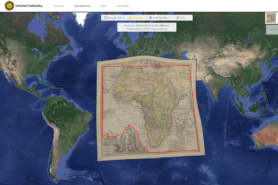
By digitally positioning a scan of an old map over a modern reference map, it becomes more geographically accessible and (re)usable. During this University Library showcase, Special Collections curator Marco van Egmond will show a number of beautiful applications and possibilities of georeferencing using practical example.
Read more & register9&10 May
Entry level course in Python for UU humanities teachers/researchers
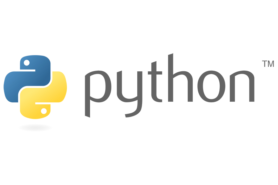
Due to the great interest we are repeating this training. This entry level course in Python is designed to teach you the foundations in order to write simple programs in Python using the most common structures. No previous programming experience is needed. The course will be given by Julian Gonggrijp and Jelte van Boheemen, scientific developers of the Digital Humanities Lab.
Read more & register3 June
Basics of Statistics – Hands-on training day for humanities teachers/researchers

Due to the great interest we are repeating this statistics course. Data are becoming increasingly important in the humanities. In this one-day course, intended for researchers and teachers in the humanities, you will learn the basics of statistical data analysis. The training will be given by prof. Hugo Quené.
Read more & registerLiving Lab Digital Humanities
All our workshops on location take place in the Living Lab Digital Humanities in the University Library City Centre. There is room for a maximum of 16 participants. So register quickly for a workshop if you want to be assured of a place!

